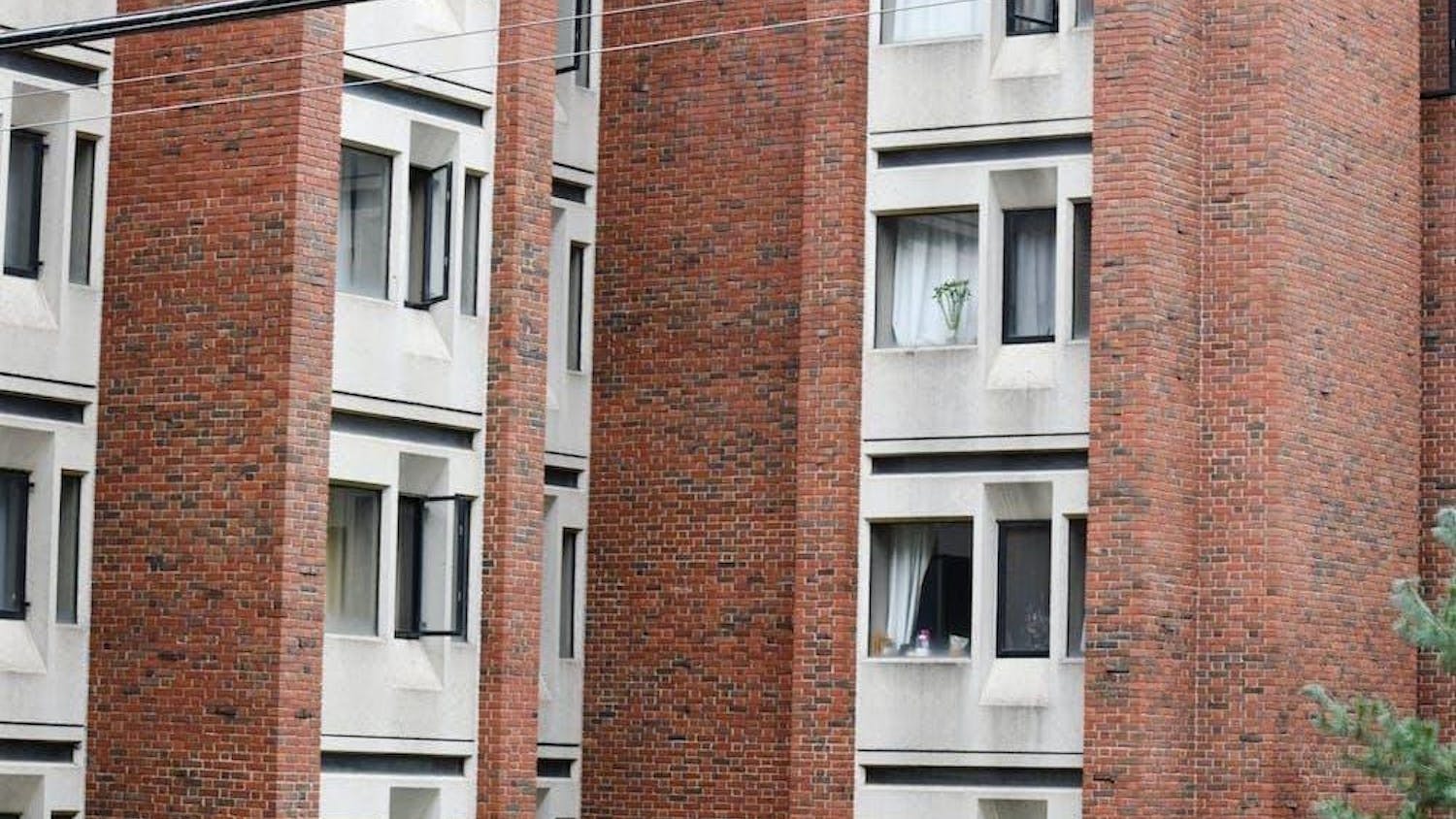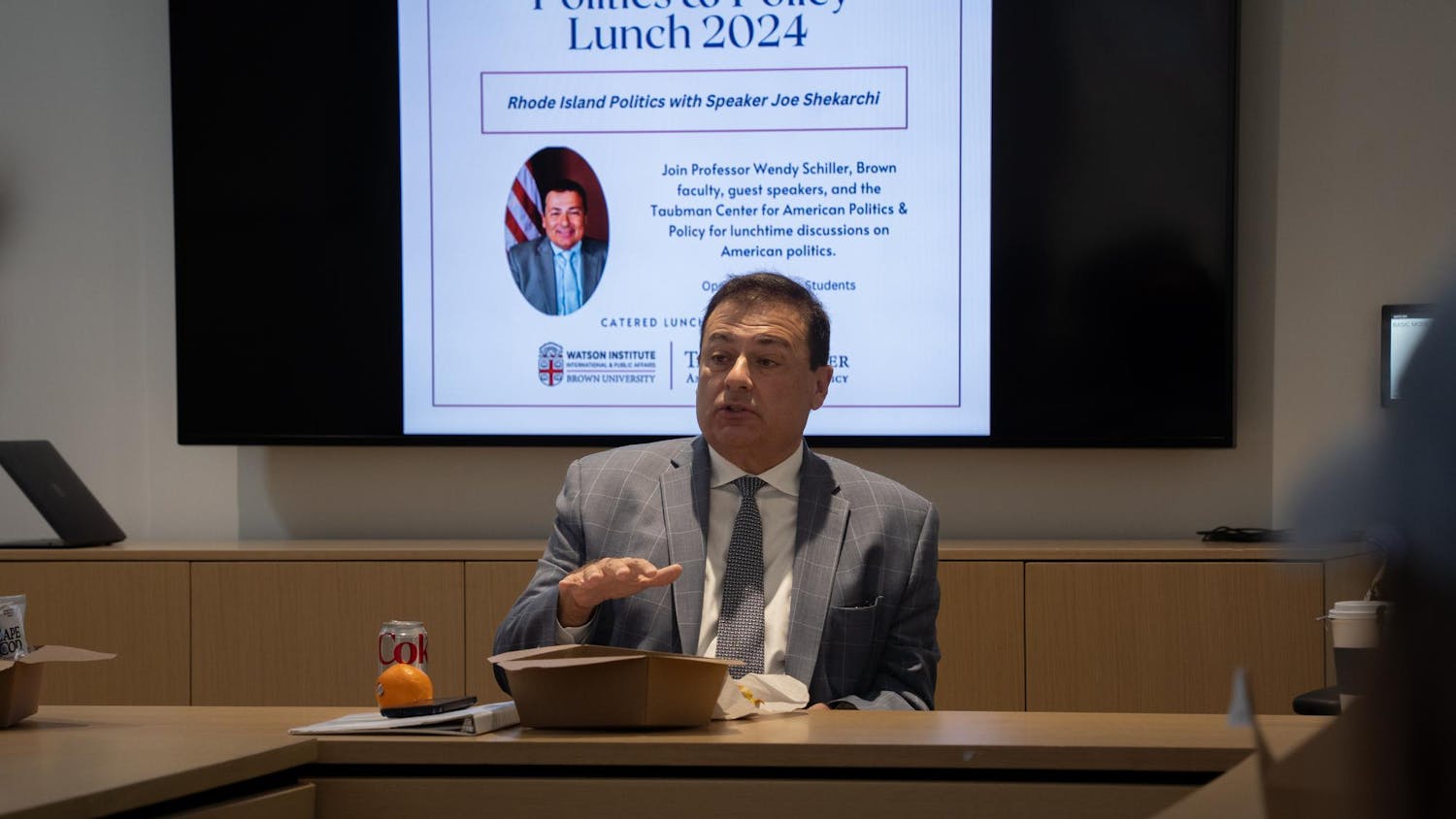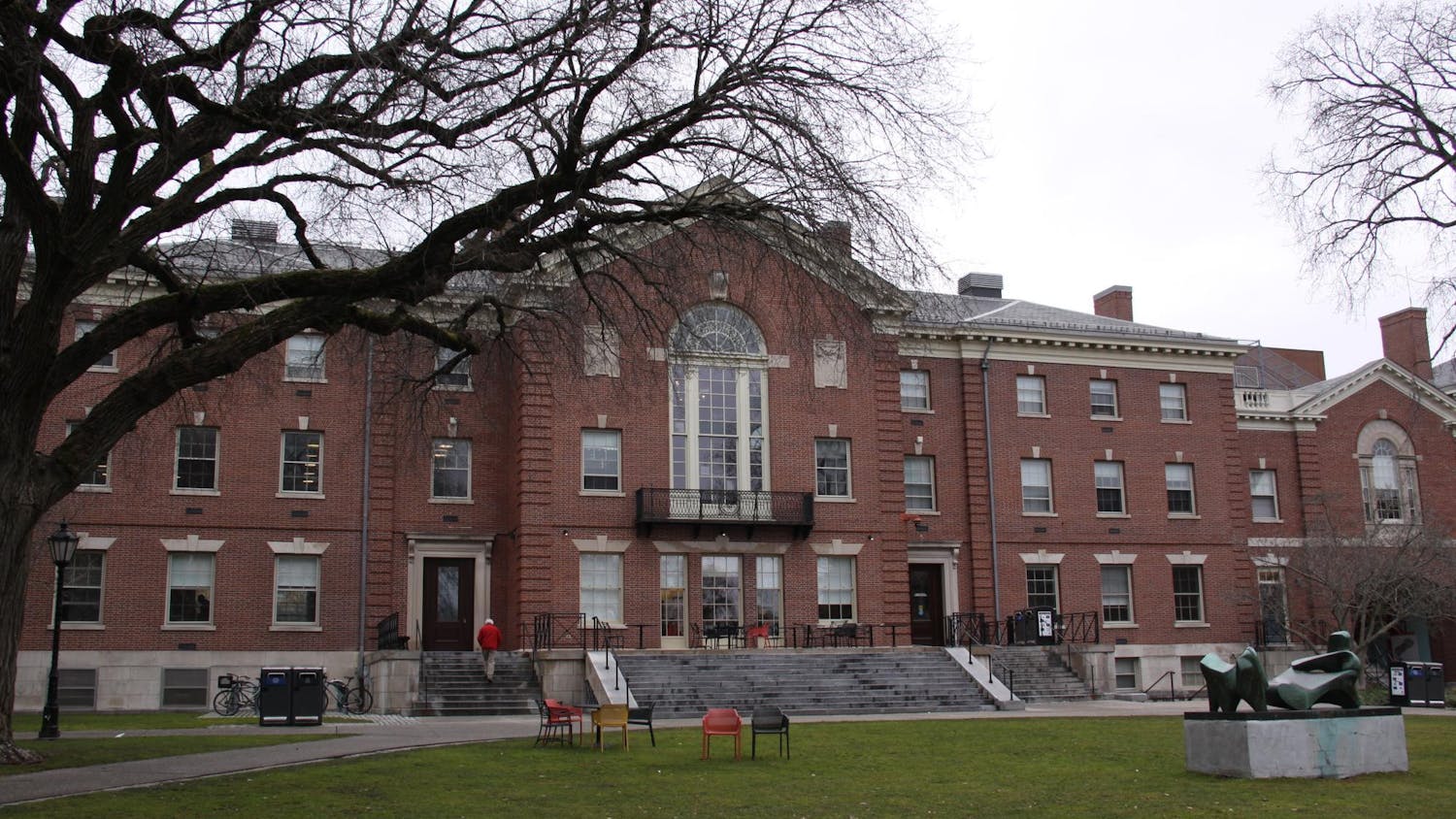Nick Petersdorf '12.5 is happy to be in a long-term relationship with Brown, but he wants to spread the love.
Transfer and international applicants eager to come to College Hill have a passion for the University, but need-aware admissions policies prevent the connection from moving "beyond the state of lust," Petersdorf argued in a debate about the issue hosted by the Janus Political Union last night in Smith-Buonanno 106.
Though the University has need-blind admissions for first-year applicants, the process for transfer and international students is need-aware, which remains a contentious topic on campus. Petersdorf, a transfer student, argued that the process should be need-blind in all cases, while Zoe Hoffman '13, who also transferred to Brown, argued against making the change. The debate quickly opened up into a free-form conversation with the small but intimate 11-member audience.
Most schools do not offer need-blind admissions — Brown is one of dozens that extend the policy to first-year U.S. applicants. Just six universities in the country, including four Ivy League schools, offer need-blind admissions to all students.
Hoffman, a features editor for post- magazine, framed her opposition to the policy in terms of priorities. After Haakim Nainar '14, a member of the audience, asked how Hoffman would feel about the issue if the University had sufficient funds, she responded that she would support need-blind admissions for all in an ideal world. "At this point it's just a budget concern, I think, in light of other choices the University makes," she said. "We have to recognize that Brown, no matter how much we try to deny it, is a business."
Petersdorf argued that the potential contributions of a more socioeconomically diverse student body would justify the added expense. "Only accepting those who can pay homogenizes the transfer and international student community," he said.
As the conversation bounced between audience members and debaters, arguments remained grounded in issues of prioritization. According to Anish Sarma '12, executive director of the Janus Forum and moderator of the debate, the tenor of the debate was unusually devoid of ideology. "There was enough common ground that we were able to have a conversation about what trade-offs we were willing to make as a community, and that's not often the direction a debate takes," Sarma, a former Herald contributing writer, told The Herald after the debate. "There are often disagreements about the principle itself, so I thought that was interesting and different."
Alina Kung '12 noted that an in-depth look into how application numbers changed after the need-blind policy was instituted at the University for first-year U.S. students in 2002 would be an important piece of evidence. "If from a justice and fairness perspective, our normative argument is that we need to make the Brown experience accessible," then a surge in first-year applications in the past would justify a change in current policy, she said.
Some students also voiced concerns that a change in policy without additional funding would force the University to reduce its transfer population, which Petersdorf described as "renowned" for its size and ease of transition.
According to Daniel Hoff '12, director of the Janus Political Union, the inspiration for the debate came from recognition that the issue could use heightened awareness and a more structured forum for discussion. "There really hasn't been too much discourse on this issue the past couple of years," Hoff said. "Janus sees itself as the facilitator of debates that are either ongoing and haven't had a real outlet or topics that have yet to be discussed."
The debate Tuesday night informed, but did not necessarily transform, the opinions of the attendees, the majority of whom supported a shift to completely need-blind admissions in an informal straw poll Sarma conducted before the debate.
"Fundamentally, my opinion stayed the same, but it shed some new light in terms of pure statistics," Kung said, adding that she was heartened to learn from Nainar that the Brown International Scholars Program offers eight scholarships to underprivileged international students. "I find (the scholars program) really inspiring," she said, "but it also might speak to how the University is failing to address it."




